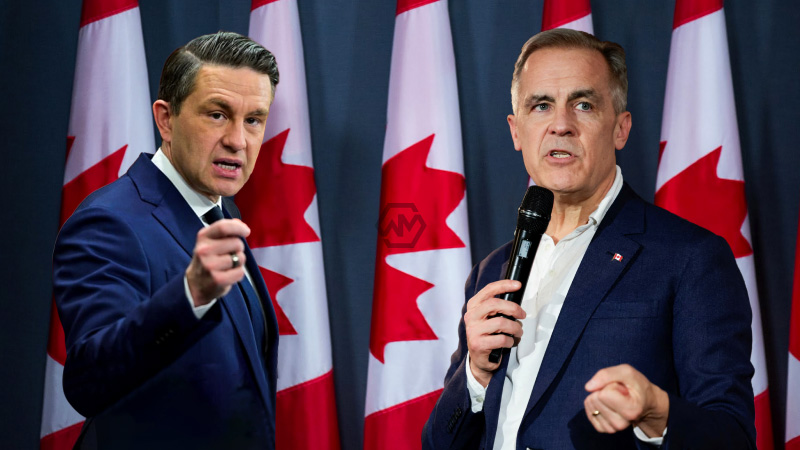- Allegations of foreign meddling in Canadian political nominations raise national security concerns.
- Conservative candidate Greg Kung campaigns door-to-door in Ottawa’s Kanata suburb.
- Poilievre echoes Trump in threatening to defund universities over ideological disagreements.
In Saskatchewan, Henry Chan’s experience of being approached by a person allegedly linked to the Chinese Communist Party underscores growing concerns about foreign interference in Canadian politics.
Meanwhile, U.S. President Donald Trump’s aggressive funding threats toward American universities over ideological disputes have sparked controversy. Moreover, echoes of that rhetoric are being heard in Canada.
From Saskatoon to Kanata: The Shifting Battle Lines in Canadian Politics
Greg Kung, a 37-year-old paramedic, has taken a traditional grassroots approach in his bid to flip Kanata blue for the Conservative Party. By knocking on over 22,000 doors since February 2024, he aims to shift momentum in a suburban riding that has historically leaned Liberal. His campaign reflects a return to one-on-one voter engagement. This is happening amid a political climate increasingly dominated by national narratives.
Pierre Poilievre’s stance on post-secondary institutions has sparked debate about the future of academic freedom in Canada. While he hasn’t provided detailed policy plans, his pledge to “defund wokism” and root out what he deems antisemitic ideologies in publicly funded institutions mirrors tactics used by leaders like Donald Trump. They aim to reshape educational spaces in line with political priorities.
Chan’s account in Saskatoon sheds light on a quieter but potentially more insidious issue: foreign actors attempting to influence party nominations. Unlike national elections, these early-stage contests are less regulated and more vulnerable. This makes them attractive targets for subtle influence that can shape who eventually gets on the ballot.
The convergence of grassroots campaigning, ideological policing, and foreign meddling suggests that Canadian democracy is being pulled in several directions. Each element—local or international—adds a layer of complexity to an already tense political environment heading into the next federal election.
As Canadian voters prepare for the next election, the integrity of the system faces challenges on multiple fronts. These include foreign influence, ideological battles, and shifting ground campaigns. Each demands vigilance and transparency.
“The price of freedom is eternal vigilance.” — Thomas Jefferson



